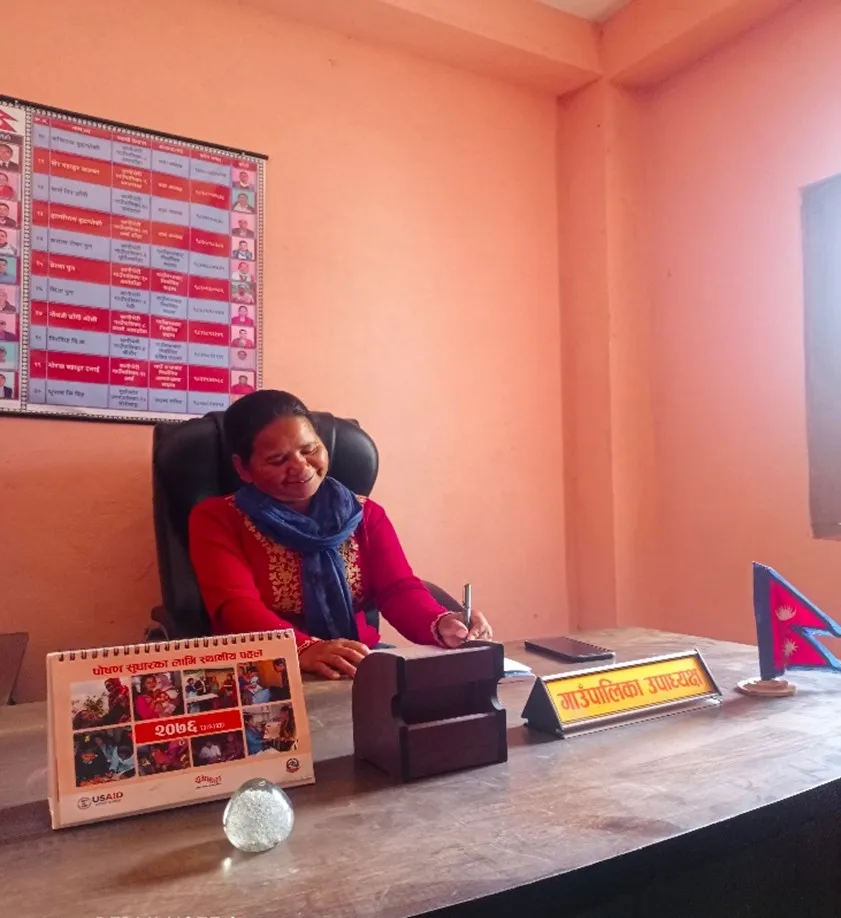Her story: From civil war to local politics

Indira Oli is the vice-chair of Sanibheri Rural Municipality, West Rukum. Rukum is one of the places of origin of the decade-long civil war (1996-2006) in Nepal.
As a student union representative, she advocated for gender equality in the sector of education and politics. Moreover, the aim to provide equal rights for all economic classes during the civil war with the Maoist group motivated her to run for the elections and to be a part of politics as a women representative.
After deciding to go underground and dedicate her life to the cause, she found more opportunities to realize her potential and enhance them. Oli said, “The women combatants were always encouraged to speak up and present their opinions”. Despite the challenges of performing dual responsibility—that of a leader and of a mother—she reached greater heights in her political career through self-discipline, self-study and by not hesitating to take decision-making roles.
In her opinion, women’s participation in politics has drastically changed in comparison to the period of the civil war. “Before civil war, women had very limited space to be part of politics but we used to rebel to be a part of it. At present, we have proper laws for women’s participation in politics. However, the existing patriarchal system is hindering the implementation of such laws that promotes equal rights”, said Oli.
The Coherence Programme in Nepal has been working to enhance deliberative decision-making processes among all genders for the inclusive participation of elected representatives. According to her, the programme has helped them in creating local government annual plans and budgets effectively and efficiently. Oli said, “This program has been useful in the sense that it brings us back to the track when we get lost in following planning processes systematically”.
The Coherence programme is a joint programme of the Ministry of Federal Affairs and General Administration, FCDO and International IDEA.




